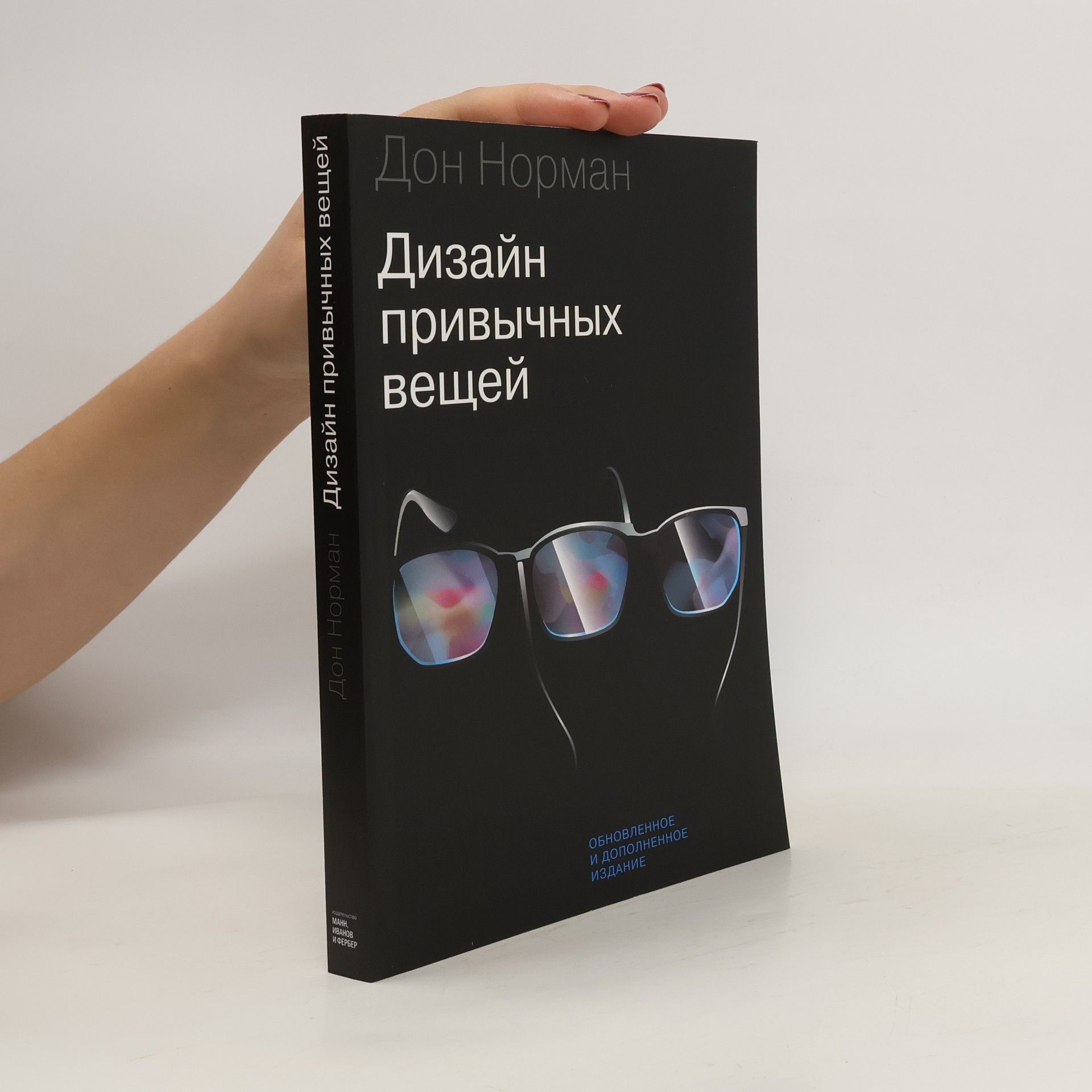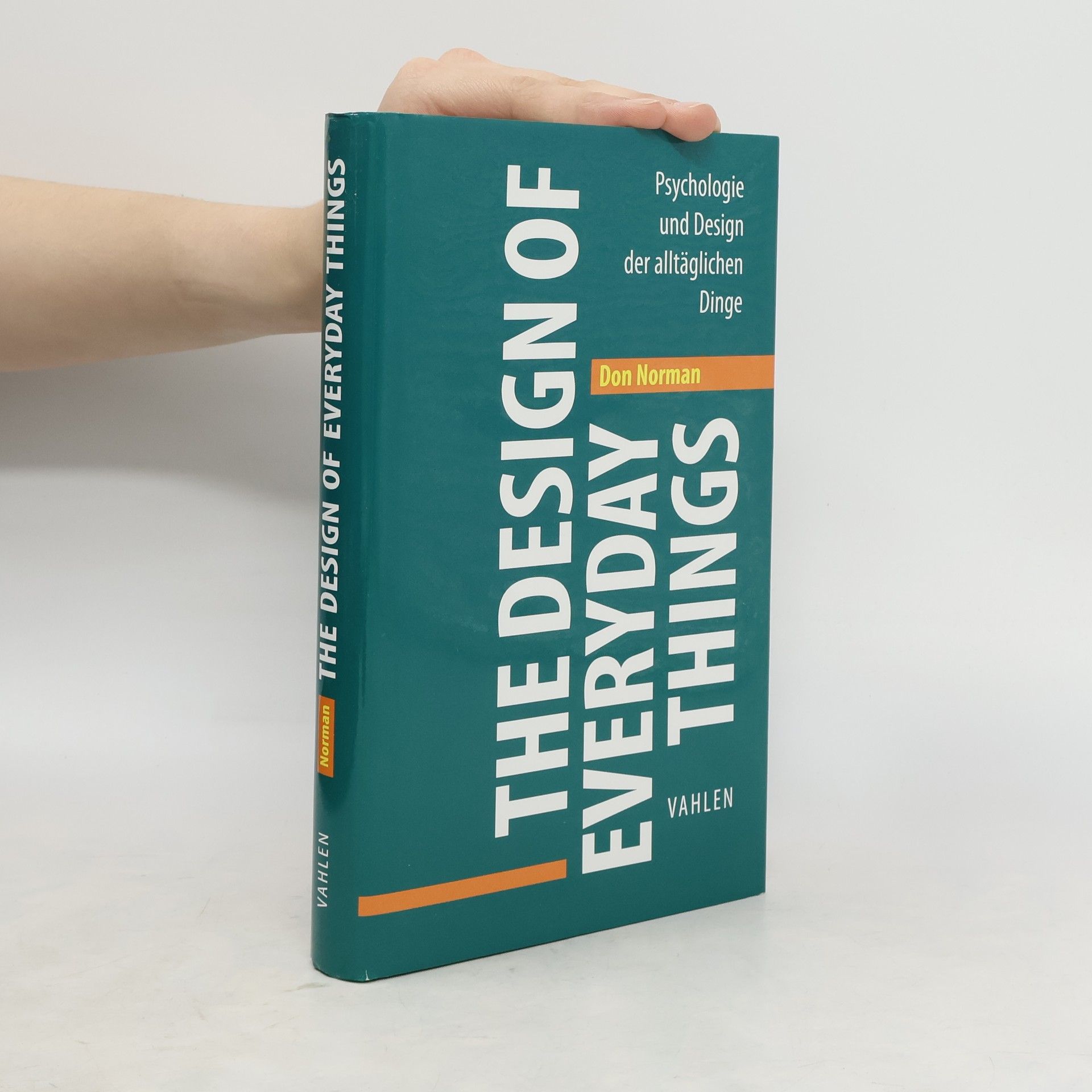The ultimate guide to human-centered design Even the smartest among us can feel inept as we fail to figure out which light switch or oven burner to turn on, or whether to push, pull, or slide a door. The fault, argues this ingenious -- even liberating -- book, lies not in ourselves, but in product design that ignores the needs of users and the principles of cognitive psychology. The problems range from ambiguous and hidden controls to arbitrary relationships between controls and functions, coupled with a lack of feedback or other assistance and unreasonable demands on memorization. The Design of Everyday Things shows that good, usable design is possible. The rules are make things visible, exploit natural relationships that couple function and control, and make intelligent use of constraints. The guide the user effortlessly to the right action on the right control at the right time. The Design of Everyday Things is a powerful primer on how -- and why -- some products satisfy customers while others only frustrate them.
Donald A. Norman Livres
Donald Norman se concentre sur la psychologie et la conception des produits. Son travail explore comment les gens interagissent avec leur environnement et comment la conception peut être améliorée pour être plus intuitive et agréable. Il souligne le lien entre l'émotion et la conception, menant à des produits qui ne sont pas seulement fonctionnels mais aussi plaisants. Son approche cherche à fusionner le cœur et l'esprit pour créer de meilleures expériences utilisateur.



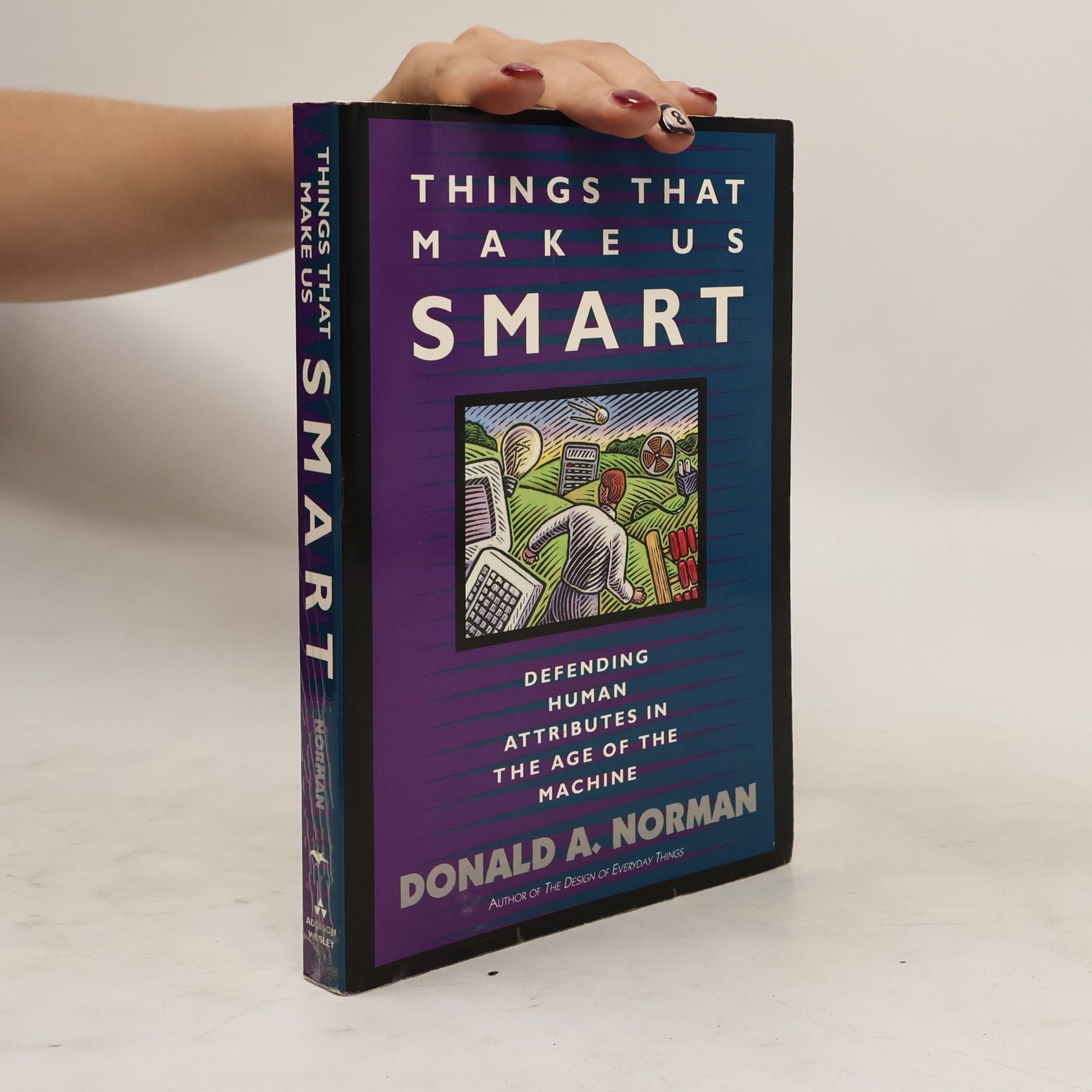
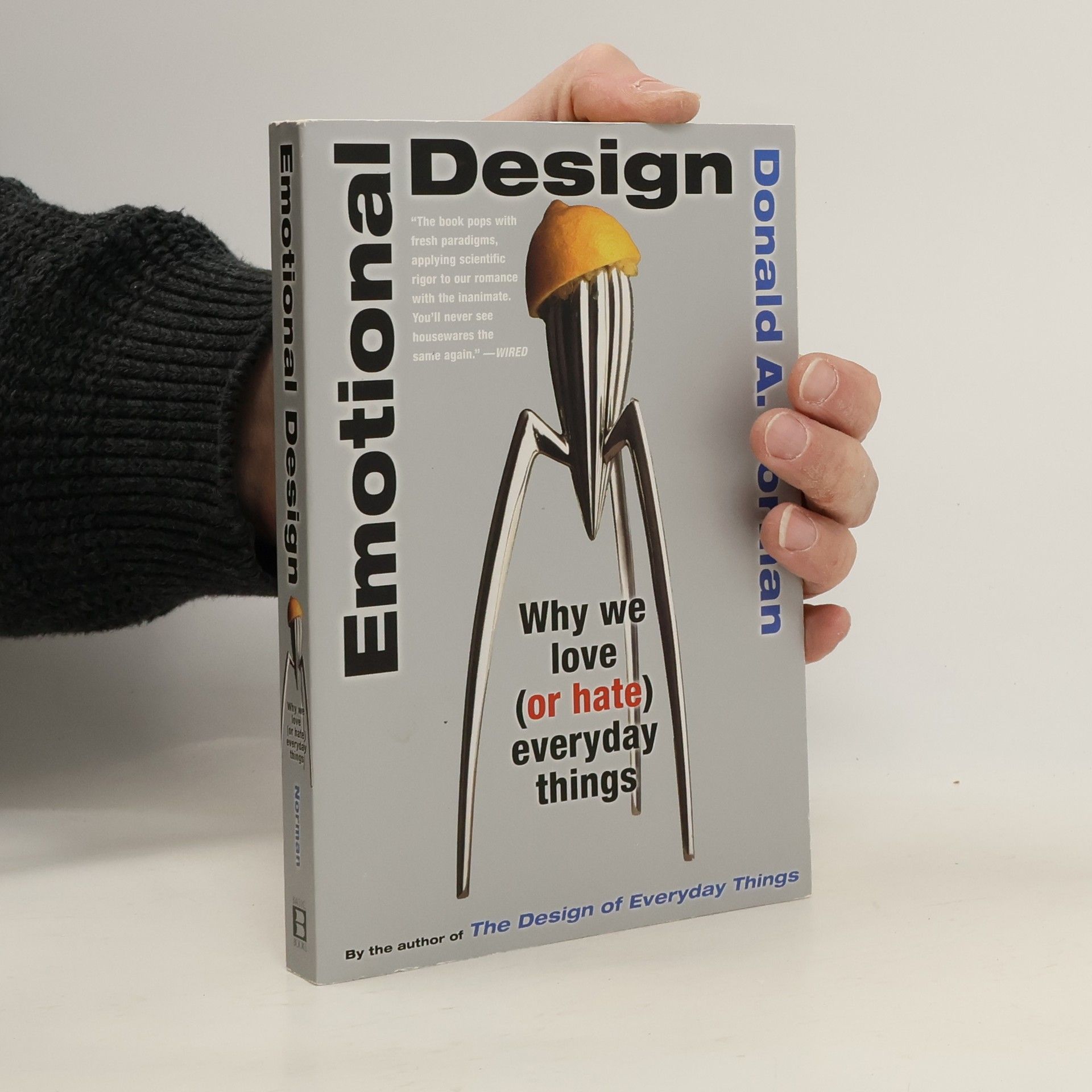
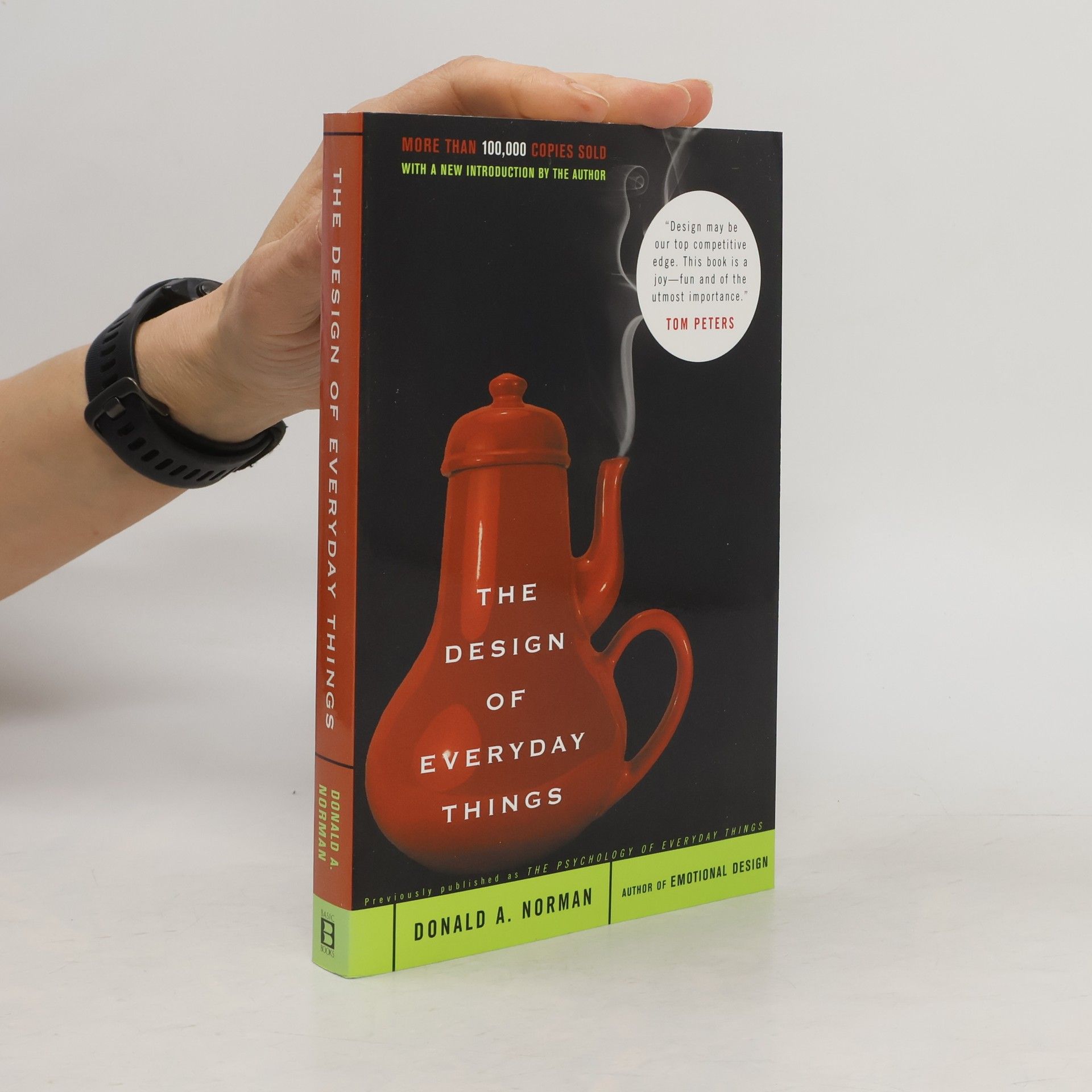
Emotional Design : Why We Love (Or Hate) Everyday Things
- 257pages
- 9 heures de lecture
"Did you ever wonder why cheap wine tastes better in fancy glasses? Or why washing and polishing your car seems to make it drive better? New research has shown that attractive things really do work better." "In the last decade, the design community has made products easier to use, largely due to Donald Norman's The Design of Everyday Things. But as he demonstrates in this book, we don't just use a product, we become emotionally involved with it. Emotional Design demonstrates for the first time the profound influence of this deceptively simple idea." "Don Norman draws on a wealth of examples and the very latest scientific insights in this exploration of the emotional impacts of objects in our everyday world. His The Design of Everyday Things showed why the products we use should not be confusing, irritating, and frustrating. Emotional Design explains why they must also be attractive, pleasurable, and fun."--Jacket
Things That Make Us Smart
- 304pages
- 11 heures de lecture
In Things That Make Us Smart, Donald A. Norman explores the complex interaction between human thought and the technology it creates, arguing for the development of machines that fit our minds, rather than minds that must conform to the machine.Humans have always worked with objects to extend our cognitive powers, from counting on our fingers to designing massive supercomputers. But advanced technology does more than merely assist with thought and memory—the machines we create begin to shape how we think and, at times, even what we value. Norman, in exploring this complex relationship between humans and machines, gives us the first steps towards demanding a person-centered redesign of the machines that surround our lives.
The invisible computer
- 316pages
- 12 heures de lecture
This text argues that companies must start with an understanding of people in relation to the development of products: user needs first, technology last - the opposite of how things are done now.
How human behavior brought our world to the brink, and how human behavior can save us. The world is a mess. Our dire predicament, from collapsing social structures to the climate crisis, has been millennia in the making and can be traced back to the erroneous belief that the earth's resources are infinite. The key to change, says Don Norman, is human behavior, covered in the book's three major themes: meaning, sustainability, and humanity-centeredness. Emphasize quality of life, not monetary rewards; restructure how we live to better protect the environment; and focus on all of humanity. Design for a Better World presents an eye-opening diagnosis of where we've gone wrong and a clear prescription for making things better. Norman proposes a new way of thinking, one that recognizes our place in a complex global system where even simple behaviors affect the entire world. He identifies the economic metrics that contribute to the harmful effects of commerce and manufacturing and proposes a recalibration of what we consider important in life. His experience as both a scientist and business executive gives him the perspective to show how to make these changes while maintaining a thriving economy. Let the change begin with this book before it's too late.
Memory and Attention
An Introduction to Human Information Processing - 2e
- 262pages
- 10 heures de lecture
Series: Series in Psychology Paperback: 262 pages Publisher: Wiley; 2 edition (May 6, 1976) Language: English ISBN-10: 0471651370 ISBN-13: 978-0471651376 Product Dimensions: 8.9 x 5.8 x 0.6 inches
The Design of Everyday Things
Psychologie und Design der alltäglichen Dinge
Gutes Design ist heute entscheidend für den Erfolg von Produkten, wie Beispiele von Apple, Audi und Samsung zeigen. Dieser Klassiker erläutert die grundlegenden Prinzipien, um alltägliche Gegenstände in unterhaltsame und zufriedenstellende Produkte zu verwandeln. Don Norman betont die Notwendigkeit eines Zusammenspiels von Mensch und Technologie, wobei die Bedürfnisse und Fähigkeiten der Nutzer im Mittelpunkt stehen sollten. Das Werk bietet eine spannende Einführung für Designer, Marketer und Produktentwickler sowie für alle, die sich für gutes Design interessieren. Don Norman ist emeritierter Professor für Kognitionswissenschaften und hat an renommierten Universitäten gelehrt. In den 1990er Jahren leitete er die Advanced Technology Group bei Apple, wo er den Begriff der User Experience prägte, um eine umfassende Anwendererfahrung zu fördern. Als Mitbegründer der Nielsen Norman Group hat er zahlreiche Unternehmen, darunter BMW und Toyota, beraten. Seine Expertise im menschenzentrierten Design wird weithin anerkannt: „Keiner kommt an Don Norman vorbei, wenn es um Fragen zu einem Design geht, das sich am Menschen orientiert.“ (Brand Eins 7/2013) Tom Peters beschreibt das Buch als unterhaltsam und von größter Bedeutung für den Wettbewerbsvorteil im Design.
